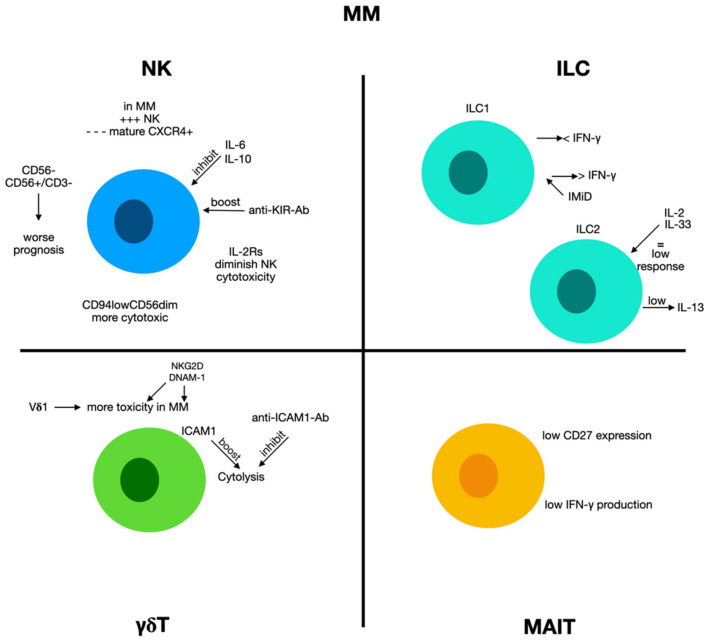Figure 5.
Multiple myeloma (MM) unconventional immune cell scenario. NK: MM subjects presenting a more significant number of NK cells at the onset of disease had a severer prognosis, leading to the unproductive stimulation of the immune system. Patients augmented with NK cells were concomitant with a less mature CXCR4+ NK cell subset. The presence of CD56+ CD3− NK cells of CD56- was related to a worse prognosis. IL-6 and IL-10 participate in NK cell functional alteration. Anti-KIR antibodies stimulated antineoplastic NK toxicity, as well as soluble IL-2 receptor. ILC: IFN-γ decreased in MM. The administration of IMiDs such as pomalidomide re-establishes the production of IFN-γ by ILC1s. ILC2s showed a weak ability to produce IL13 and an inadequate response to IL-2/IL-33 stimulation. γδT: IFN-γ secretion and Vδ1 T cell toxicity against MM cells occurred due to the T cell receptor (TCR) and other molecules (such as NKG2D, CD3, and CD2 receptors), DNAX accessory molecule-1, and intracellular cell adhesion molecule (ICAM)-1. MAIT presented low CD27 expression as well as low IFN-γ production.

